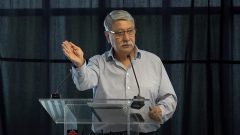Our starting point

First Nations successfully governed themselves, created and participated in their own economies, and negotiated relationships with other nations for thousands of years before colonization of what was to become the country of Canada. But the Indian Act changed all that.
For more than 150 years the Indian Act and related colonial policies have treated First Nations peoples as wards of the state, disempowered community leaders and disrupted lines of accountability between leaders and the people. It not only dismantled self-governance in First Nations societies, its administration has failed to produce for First Nations peoples the social and economic outcomes that most other Canadians enjoy.
The Indian Act remains at the root of some of the toughest issues in First Nations-Canada relations. And although many First Nations peoples and successive Canadian governments have recognized the damage the Indian Act has created, efforts to change it or repeal it have largely failed.
The Rebuilding First Nations Governance (RFNG) project is helping to find another way out from under Indian Act administration. It is supporting First Nations communities to develop their own path back to their inherent right to self-government as recognized in Canada’s Constitution, based on community-led analysis of the impact of the Indian Act and the development of strategies to transition out from under it and into the realm of their own inherent rights governance.
RFNG aims to liberate the energy and vision for change in First Nation communities through road-tested step-by-step community-led processes, peer-to-peer learning among First Nations, and targeted academic research keyed to community priorities. The knowledge generated by the project will be available to all who wish start their own journey back to their inherent right to self-government
RFNG Project Goals:
- Develop a transitional inherent rights governance model and tools to guide and inspire First Nations;
- Build a deeper understanding of the impact of the Indian Act and the reasons for its persistence, to generate a consensus decision for change by the rights holders in First Nations communities;
- Create a Nation Re-Building Action Network through which First Nations will document and share knowledge and experience;
- Contribute to the necessary Canada-wide dialogue on implementation of Indigenous jurisdiction and Section 35 of the Constitution Act that stems from the rights holders;
- Contribute to a growing body of Indigenous scholarship that is exploring and sharing the political, social and legal thought of Indigenous nations and help form the basis for new programs and curriculum in academia across the country; and
- Train and mentor students, particularly Indigenous students, and citizens of First Nation communities nationwide to conduct transformative research, gain meaningful experience working amongst the people in the community and provide the tools that are needed to continue this work for generations into the future.